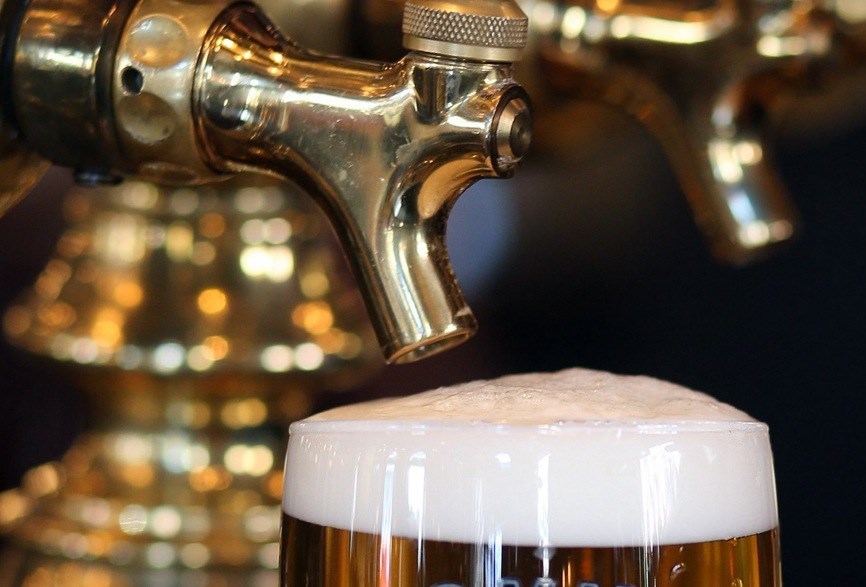Confusion over who should open the door to police and liquor inspectors has landed a Port Coquitlam bar in hot water.
Bennett Craft and Kitchen, , has now been fined $16,000 for closing late and failing to allow entry to liquor store inspectors — actions deemed to be a "flagrant and utter disregard for the law."
In a decision posted online, the Liquor and Cannabis Regulation Branch branch found that The Bennett — located at 2099 Lougheed Hwy. — because it let patrons stay beyond closing time and staff didn't take action to immediately allow inspectors and police into the premises.
Instead, according to inspectors, a patron answered the door and refused them entry.
The liquor inspection took place on Nov. 27, 2021, when people were observed drinking "yellow" liquid from sleeves and short glass tumblers past the bar's 2 a.m. closing time. Music could also be heard in the parking lot, and TVs were on, inspectors told a March 28, 2022 hearing.
Locked door barred entry to police, inspectors
The inspectors called Coquitlam RCMP to assist them, and, when officers arrived, the inspectors and police tried to gain entry at the front door.
No one responded at first, until a police officer kicked the door, at which point a patron, who said he was in charge, refused them entry.
According to testimony, the patron said he had to check if the alarm was on.
"When the liquor inspectors and the RCMP officers sought to gain entry, they were refused and were not permitted to enter until at least ten minutes had passed. The liquor inspectors observed people clearing the tables as they were waiting to gain entry," the decision states.
Further testimony revealed that the general manager and evening manager had already left the bar, leaving control to two doormen, one recently hired and one experienced doorman who wasn't on duty but was helping out.
According to the report, the doorman on duty should have told the patron to leave because it was past closing time.
Instead, the patron continued to infer that he was in charge by not specifically stating he was not the manager and suggesting he couldn't "provide sales receipts or TV footage and that they would have to return the next day," the hearing was told.
Supposed to stop serving alcohol at 2 a.m.
"He continued to complain about the actions of the RCMP officers and the liquor inspectors in entering the establishment and picking on them," according to inspectors' testimony.
It wasn't until several days later that the inspector learned that the patron who claimed to be a manager wasn't even an employee, the decision states.
At the Bennett, staff are supposed to stop serving alcohol at 2 a.m. but customers are allowed a half hour to finish the drinks they have.
According to testimony, there were still patrons in the establishment at 2:45 a.m.
Operations manager Leonard Hutchinson told the hearing he left the bar at 2:05 a.m. because he was feeling ill.
Hutchinson said the patron later told him he didn't refuse entry and didn't say he was in charge.
According to Hutchinson, the incident was a one-time mistake.
Bars need 'help not persecution' post-COVID-19
In its ruling the BC Liquor and Cannabis and Regulation Branch said better training, a more detailed operations manual, including information about what to do when a liquor inspector arrives, would help the company deal with issues observed during the November incident.
"This was not a one-off mistake where one staff member failed to follow the procedures. One reason why staff failed to follow the rules is the lack of any training on the particular issue of how to respond to liquor inspections, with the resulting failure by staff to follow the rules regarding allowing entry to liquor inspectors," BC liquor branch representative Nerys Poole stated in the decision.
As to the patron's deception, Poole wrote: "It beggars belief that doorman 1 was not aware that patron 1 was pretending to be the authority. "
But Hutchinson told the Tri-City News while he's not sure exactly what the customer said in the confusion, he feels the liquor control branch should be working with businesses that are struggling after COVID-19, not "persecute them."
For example, the inspectors could have addressed the issue earlier by entering the establishment at 2 a.m., when they got there, rather than waiting, or contacted him directly, the following day, to sort things out.
As to staff training, Hutchinson said he's at the bar most nights and trains by example and uses technology to update staff on business practices and protocols.
The bouncer on duty didn't go to the door he said, because he didn't hear the knocking. Instead the customer, who is a regular, answered the door.
Inspectors could have solved the confusion by asking the other staff whether the customer was indeed the manager in charge, Hutchinson said.
"I really want to stress and why I feel persecuted or upset. If I did something wrong I’m the first person to say 'I’m wrong, I’ll pay it,' but there is no human aspect to this. No one came to say, 'we’ll work with you buddy,' no one."
Hutchison said he has appealed the decision, and if unsuccessful, will take the matter to court.



